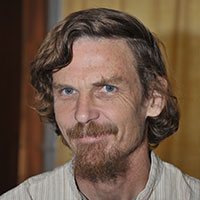What broad lessons have we learned from 115 studies on unconditional cash transfers?
Globally, around 700 million people currently live in extreme poverty, and in recent years, unconditional cash transfers have emerged as a popular tool for poverty alleviation in low- and middle-incom...
-
 Tommaso Crosta
Tommaso Crosta  Dean Karlan
Dean Karlan  Finley Ong
Finley Ong  Julius Ruschenpohler
Julius Ruschenpohler  Christopher Udry
Christopher Udry  20 June, 2025
20 June, 2025
- Articles
Food deprivation: A thali index reveals what poverty estimates do not
Poverty in India is typically estimated based on a poverty line that identifies the purchasing power needed to satisfy the daily calorific intake deemed necessary. In this post, Balakrishnan and Raj m...
-
 Pulapre Balakrishnan
Pulapre Balakrishnan  Aman Raj
Aman Raj  06 June, 2025
06 June, 2025
- Perspectives
Could better jobs for men have improved gender equality?
Evidence indicates that economic growth can improve gender equality. In this post, Sujata Balasubramanian suggests that India’s high-growth period from 1982-83 to 2011-12 failed to do so substantial...
-
 Sujata Balasubramanian
Sujata Balasubramanian  25 April, 2025
25 April, 2025
- Articles
Covid-19: How long can consumption be sustained in lockdown?
In May 2020, the Finance Minister announced an economic relief package totaling Rs. 20 trillion, in response to the Covid-19 crisis. However, the actual stimulus is estimated to be only 1.3% of GDP. I...
-
 Anu Abraham
Anu Abraham  Mohd. Imran Khan
Mohd. Imran Khan  20 July, 2020
20 July, 2020
- Perspectives
Pandemic as a lens: Identifying and addressing livelihood vulnerabilities
Based on the findings from a phone survey of around 5,000 Indian workers, the authors explore the impact of the Covid-19 economic lockdown on two forms of livelihood vulnerabilities: employment insecu...
-
 Rosa Abraham
Rosa Abraham  Amit Basole
Amit Basole  Surbhi Kesar
Surbhi Kesar  Rahul Lahoti
Rahul Lahoti  Paaritosh Nath
Paaritosh Nath  13 July, 2020
13 July, 2020
- Notes from the Field
Hunger and precarity: The state of nomadic fortune-tellers of Odisha
In this note, Abinash Dash Choudhury, who works as part of a network of researchers to present fortnightly data on the humanitarian crisis associated with Covid-19 in India, writes about the current s...
-
 Abinash Dash Choudhury
Abinash Dash Choudhury  30 June, 2020
30 June, 2020
- Notes from the Field
Covid-19 relief: Are women Jan Dhan accounts the right choice for cash transfers?
While the relief package announced by the Government of India for Covid-19 rightly complements food rations with cash transfers, the case for using the list of women Jan Dhan bank accounts for the lat...
-
 Anmol Somanchi
Anmol Somanchi  22 May, 2020
22 May, 2020
- Perspectives
Covid-19: A tailor’s tale
This note presents a narrative that is based on an interview conducted on 15 April with a tailor who walked most of the way from Jaipur to his home in Farrukhabad district in Uttar Pradesh, after the ...
-
 Bhavishya Mehta
Bhavishya Mehta  Rohini Somanathan
Rohini Somanathan  12 May, 2020
12 May, 2020
- Notes from the Field
How has Covid-19 crisis affected urban poor? Findings from a phone survey - II
While several commentators have highlighted the plight of migrants due to the ongoing Covid-19 crisis, less is known about how low-income families living in urban shanty towns are faring. Afridi et al...
-
 Farzana Afridi
Farzana Afridi  Amrita Dhillon
Amrita Dhillon  Sanchari Roy
Sanchari Roy  11 May, 2020
11 May, 2020
- Notes from the Field
Webinar: Impact of Covid-19 on informal and migrant workers in India
The International Growth Centre (IGC), in collaboration with I4I, organised a Webinar on 'The impact of Covid-19 on informal and migrant workers in India', with Jean Drèze (Ranchi University), Farzan...
-
 Farzana Afridi
Farzana Afridi  Jean Drèze
Jean Drèze  Purnima Menon
Purnima Menon  Shahid Vaziralli
Shahid Vaziralli  11 May, 2020
11 May, 2020
- Perspectives
How has Covid-19 crisis affected the urban poor? Findings from a phone survey - I
While several commentators have highlighted the plight of migrants due to the ongoing Covid-19 crisis, less is known about how low-income families living in urban shanty towns are faring. In this note...
-
 Farzana Afridi
Farzana Afridi  Amrita Dhillon
Amrita Dhillon  Sanchari Roy
Sanchari Roy  23 April, 2020
23 April, 2020
- Notes from the Field
Balancing corruption and exclusion: Incorporating Aadhaar into PDS
How should recipients of publicly provided goods and services prove their identity in order to access these benefits? This article reports findings from a large-scale experiment across 15 million bene...
-
 Karthik Muralidharan
Karthik Muralidharan  Paul Niehaus
Paul Niehaus  Sandip Sukhtankar
Sandip Sukhtankar  17 April, 2020
17 April, 2020
- Articles
Lockdown, life, and livelihood in the times of Corona
After around 36 hours of the lockdown to prevent the spread of Covid-19 in India, the Finance Minister announced a slew of welfare measures amounting to Rs. 1.7 trillion to support the vulnerable popu...
-
 Arjun Kumar
Arjun Kumar  Balwant Singh Mehta
Balwant Singh Mehta  Simi Mehta
Simi Mehta  07 April, 2020
07 April, 2020
- Perspectives
Covid-19: What can be done immediately to help vulnerable population
With over 80% of India’s workforce employed in the informal sector and one-third working as casual labour, Covid-19's spread and subsequent unplanned lockdowns, have created economic havoc in the li...
-
 Reetika Khera
Reetika Khera  25 March, 2020
25 March, 2020
- Perspectives
Populism: Why in rich countries and in good times
Economic anxiety and insecurity are often cited as drivers of populism, so why has populism emerged over the past few years in rich countries and in good times? This article argues that when the econo...
-
 Lubos Pastor
Lubos Pastor  Pietro Veronesi
Pietro Veronesi  26 February, 2020
26 February, 2020
- Articles
Twitter feed
Tweets by Ideas4IndiaMost Popular Poverty & Inequality Posts
Wealth inequality, class, and caste in India: 1961-2012
The level of wealth inequality in India is close to that of some highly unequal countries in the world. This article assesses the long-term evolution of wealth inequality in the country for the period...
 Nitin Kumar Bharti
Nitin Kumar Bharti  28 June, 2019
28 June, 2019
- Articles
Covid-19: What can be done immediately to help vulnerable population
With over 80% of India’s workforce employed in the informal sector and one-third working as casual labour, Covid-19's spread and subsequent unplanned lockdowns, have created economic havoc in the li...
 Reetika Khera
Reetika Khera  25 March, 2020
25 March, 2020
- Perspectives
A review of the coverage of PDS
The coverage of the Public Distribution System (PDS) has been of wide interest due to the pandemic and lockdown. Based on government data sources, Khera and Somanchi estimate the state-wise coverage o...
 Reetika Khera
Reetika Khera  Anmol Somanchi
Anmol Somanchi  19 August, 2020
19 August, 2020
- Perspectives





 31 July, 2025
31 July, 2025






